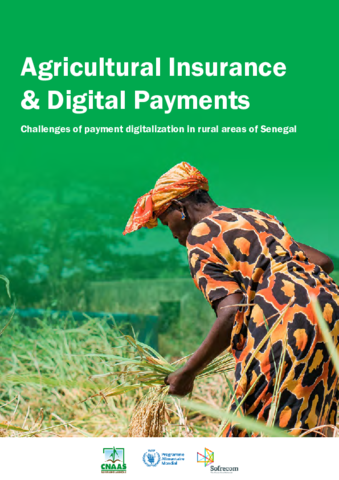
Digital payment solutions, especially those offered by mobile money and money transfer operators, play a major role in the development and success of agricultural insurance products. The digitalization of payments provides significant benefits to stakeholders offering insurance solutions, including, among others: security and facilitation of payment procedures; time saving for processing and reporting payments; reduced operational costs; optimization of resources; and improved customer experience.
The success of digital solutions in rural areas largely depends on the ability of the designed models to meet the needs of stakeholders in the agricultural world and to adapt to their constraints. This case study presents the challenges and lessons learned on payment digitalization in rural areas of Senegal, drawn from a digital transformation project undertaken by the National Agricultural Insurance Company of Senegal (CNASS) with the support of the World Food Programme and Sofrecom, a consulting and engineering firm with a renowned expertise in telecommunications and digital financial services (DFS) sectors. Since 2012, WFP and CNAAS have been supporting smallholder farmers in rural Senegal to access index-based insurance solutions through the R4 Rural Resilience Initiative.
